
Kelly Rose
Editor

Kelly Rose
Editor
Research shows changing attitudes to skin care and workers are no longer accepting that the poor skin condition of their hands is part of the job. SC Johnson outlines its latest research and solutions.
The industrial workplace today is a far cry from that of 50 years ago. With increased health and safety regulations and cleaner workplaces, workers are exposed to significantly fewer heavy contaminants than in the past1. A different environment to that of 100, or even 50 years ago, technological progress has enabled industry to become more automated, replacing labour with machines that consequently shield employees from much of the dirt, grease and grime that preceded them. In addition to this, many workers no longer accept that poor skin condition of their hands is simply “part of the job” and instead want to ensure their hands stay in good condition. But do industrial skin care products on the market today really reflect this?
There is lots to be gained from listening to end users and their needs. By demonstrating a willingness to take on board your workforce’s views, you can foster a healthier environment in the workplace, which in turn generates greater employee engagement, loyalty and productivity.
With this in mind, it’s important to implement a skin care programme, including - high quality skin care products, that- are suited to the needs of the modern industrial users of your workforce. Professional skin care, cleaning and hygiene solutions provider SC Johnson Professional carried out extensive onsite research to look into this further and to find out exactly what the modern industrial employee was looking for in terms of a skin care programme. The studies found that, in both light and heavy industrial environments, many employers lacked an appropriate skin care offering, which included using outdated skin care products that were not fit for purpose.
The situation
Industrial employees face a unique challenge when it comes to skin care. Working with the hands whilst exposed to a wide range of contaminants in varying degrees, skin issues are commonly seen in the sector and skin health is still a problem.
More than 1 in 10 workers suffer from dermatitis on a daily basis2 and work-related skin disorders are the second most common work-related health problem in Europe3. In 2015-16, an estimated 18,000 UK workers who had worked in the previous 12 months had skin problems which they believed were caused or exacerbated by their work4. In summary, across their working life up to 40% of industrial workers will suffer a skin issue5, but as cases often go unreported, it is thought that the scale of the problem could be underestimated by up to 10-50 times6.
Symptoms range from sore, dry skin right through to cracked or bleeding hands, often perceived to be a routine occupational hazard or regular side effect of work in the industrial sector. However, these work-related skin disorders collectively pose a serious threat to health, safety and efficiency in the workplace.
The frequency with which these painful skin disorders are experienced, as exemplified above, can mean that many workers are unaware of the extent of the problem or of how to identify the warning signs. A potentially dangerous combination, as if left untreated, skin disorders can reoccur or cause allergic reactions to certain contaminants, employees can relapse and ultimately this may necessitate a change of career.
The ramifications of skin disorders are extensive. From a managerial perspective, a major impact can be financial. Employee impairment due to poor skin health reflects in the efficiency and output of a business. With your workers unable to carry out even the simplest daily tasks, an increase in sick leave and absenteeism is inevitable.
When it comes to self-care, simple changes and approaches can make a huge difference. Whilst the implementation of a comprehensive skin care programme with the right products for your employees may initially seem like a relatively minor issue, small but regular improvements to skin care can have significant impacts.
The research
With skin disorders having such a significant impact on businesses and employees, financially and physically, SC Johnson Professional set out to explore the current skin care programmes being implemented in today’s industrial sector, including what skin care products are being used.
SC Johnson Professional conducted a broad range of worker focus groups and manager interviews across the UK, Germany and the US. This research ranged from manufacturing sites to distribution centres, with the aim of finding out more about worker needs and the frequent skin care challenges faced in the modern industrial workplace. The findings included outdated cleaning agents that were heavy in solvents and harsh abrasive scrubbing ingredients. Whilst effective at removing grease, these were quickly drying out and sensitising the skin with repeated usage. Employees were not happy with the state of their hands, but most simply saw bad skin condition as part of the job.
For employers, the greatest importance was placed on employee wellbeing; implementing a comprehensive skin care programme was recognised as an effective way to demonstrate a caring attitude and of fostering a positive working environment. Managers were also unsure of what employees wanted in terms of their skin care but were keen to invest in it.
For employees, on the other hand, the issues were widespread and numerous. A broad range of potential contaminants, such as paints, pigments, resins, dyes, dust, grease and oil were all mentioned – each also varying in severity. Employees felt that their employer’s skin care programme was lacking in a number of ways. There was a lack of nuance in product category segmentation, with dispensers unclear. The employers’ lack of training was also reiterated by this group.
However, most problems with employers’ skin care programmes were found to lie with the product itself. Many workers were using outdated skin care products that were no longer appropriate in a light industrial environment. Skin care products being used were often heavier duty than was necessary and had not been evaluated for a significant amount of time.
On the other hand, it was also found that many employees in light industry such as warehousing were using standard washroom soaps. These soaps were unfit for use in an industrial setting, not effectively cleaning soilings from the skin, and leaving the hands sore and stressed from over-washing.
The recommendations: implementing the 3 Moments of Skin Care
To create an effective skin care offering, the employer should focus on the 3 Moments of Skin Care in industrial settings. The simple and memorable guideline identifies the three distinct moments at which skin care action is required, helping your workers easily adopt and follow your comprehensive skin care programme throughout their working day. At each stage, it is important to provide the appropriate protection or treatment for the skin, relevant to the activity being done.
Before work, skin protection creams should be applied. They can reduce direct contact with specific types of physical contaminants, help retain natural lipids and moisture in the skin improve comfort under gloves, and make the skin easier to clean. Some specialist protection creams can help prevent exposed skin from getting dry under cold working conditions and provide improved grip with using hand-held tools.
Following contamination or during work breaks, hands should be washed with an appropriate hand cleanser or soap to remove all dirt and harmful contaminants from the skin, and then followed with the application of the correct protection or restore cream, specific to skin condition i.e. normal skin or dry skin SC Johnson Professional’s Power Foam Estesol FX is specially formulated for removing general dirt, oil and grease, where Solopol GFX is the world’s only gritty foam hand cleaner, designed for heavier soilings.
After work, restore products should be applied to moisturise, nourish and condition the skin, and help prevent it from becoming dry or damaged. Regular use of restore creams helps keep the skin in a healthy condition. In the colder winter months, when the skin loses moisture and is more prone to becoming dry and sore, it is even more important to replenish skin with restore creams.
Training
In partnership with appropriate, effective products, workplace training is a critical part of a comprehensive skin care programme. A ‘one size fits all’ approach is insufficient: site surveys or audits are recommended, allowing you to select the correct products for soilings encountered in your workplace.
To help implement skin care best practice, training should be used, designed to help make the understanding of skin care practices as easy as possible. SC Johnson Professional recommend “Toolbox-Talk” style videos, which explain the importance of handwashing and of using pre and after-work creams, making best practice easy to understand and follow.
Reinforcement
Following onsite training or site surveys, ongoing reinforcement can be implemented with the use of workplace resources. Simple, visual prompts such as posters and reminders at relevant stations work best, for example a protection cream station by the entrance to the site.
References
1 https://www.hse.gov.uk/aboutus/timeline/index.htm
2 Luckhaupt et. Al; American Journal of Industrial Medicine 56:623-634 (2013).
3 European Agency for Safety and Health at Work.
4 2015/2016 HSE Labour Force Survey.
5 Centers for Disease Control & Prevention
6 European Dermatology Forum White Book – Skin Diseases in Europe
For more information on SC Johnson Professional’s industrial Power Foams range, visit www.scjp.com/en-gb/innovation-insight-power-foams
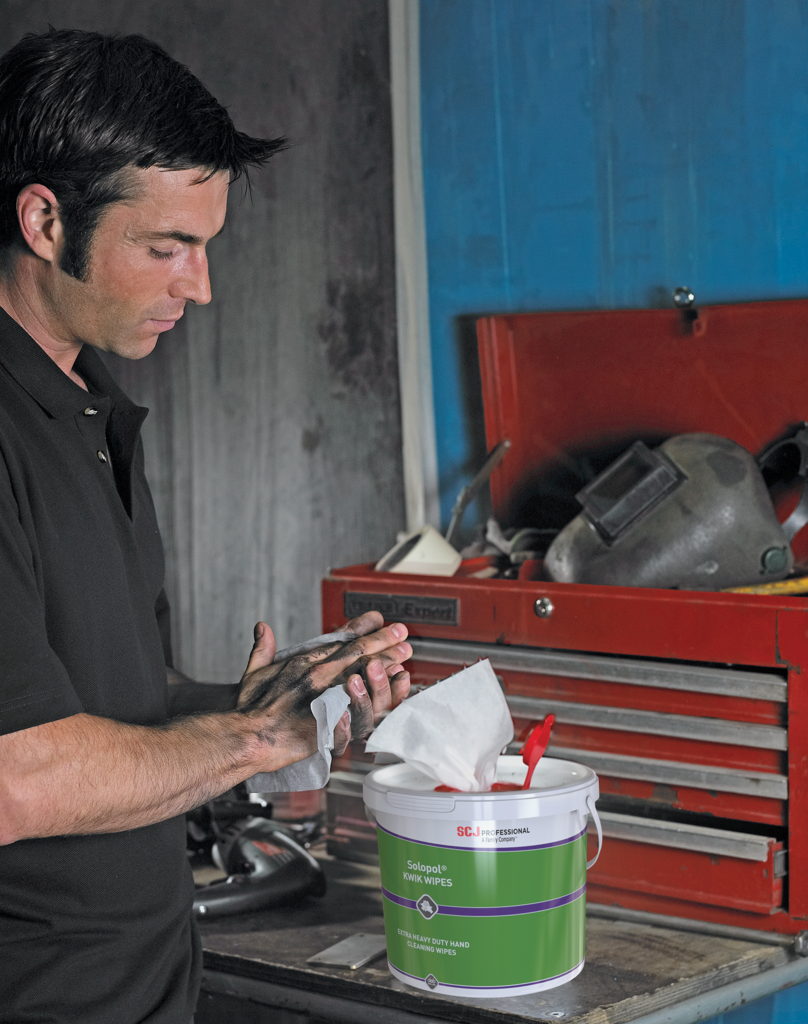
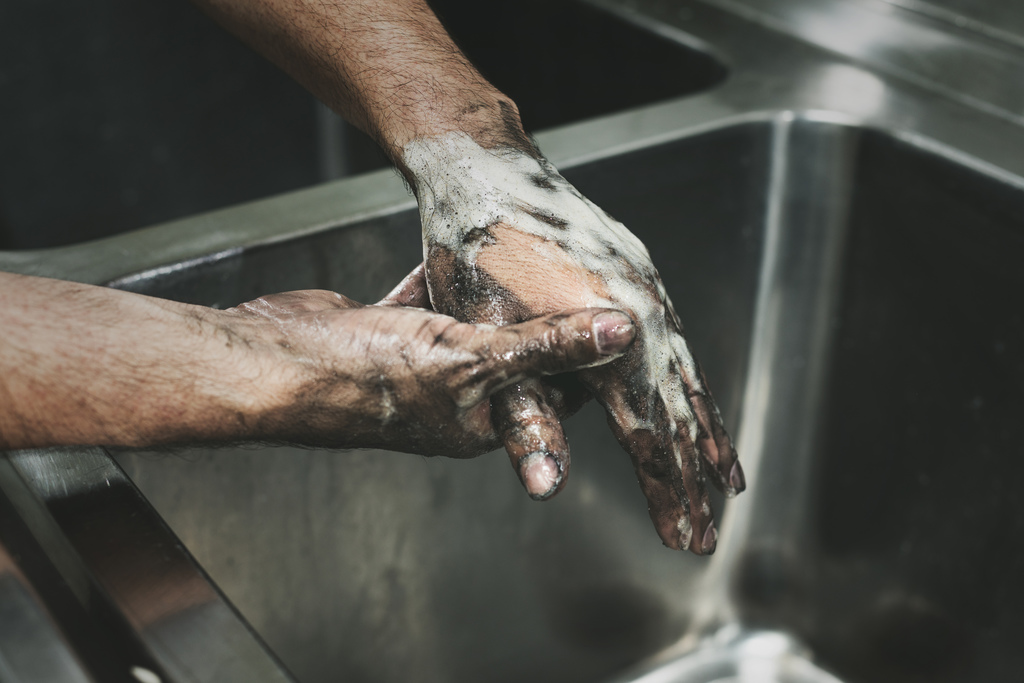
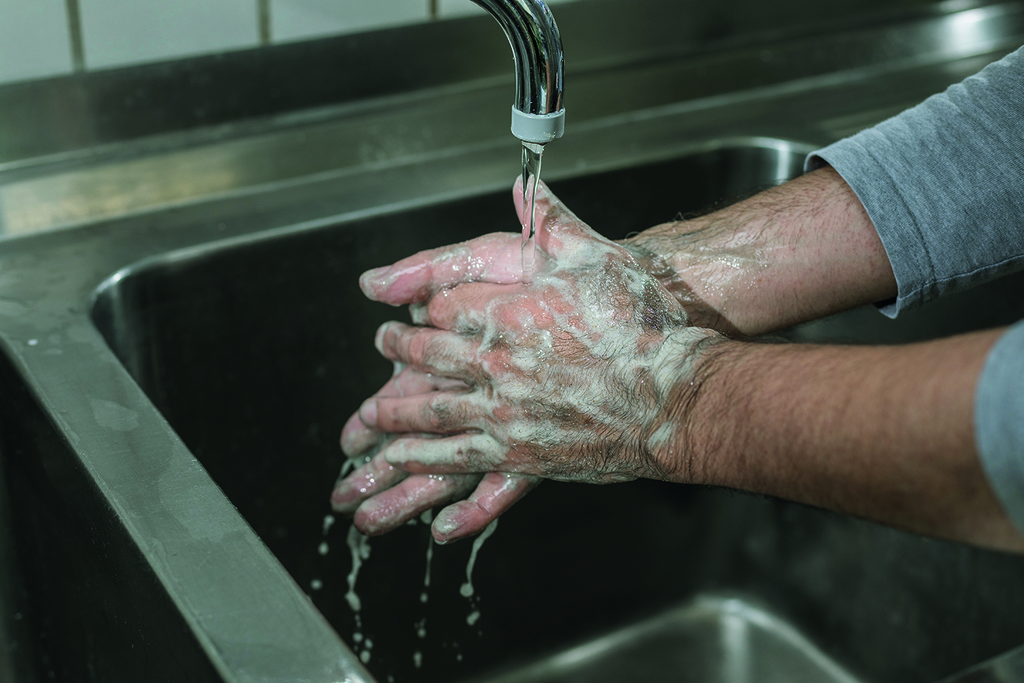
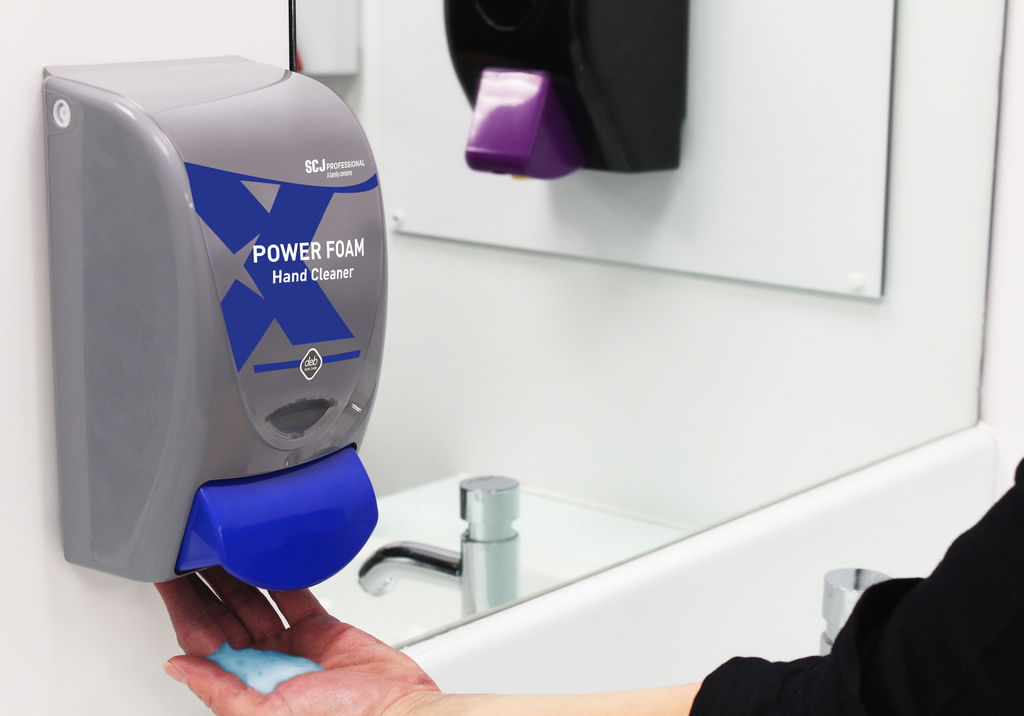
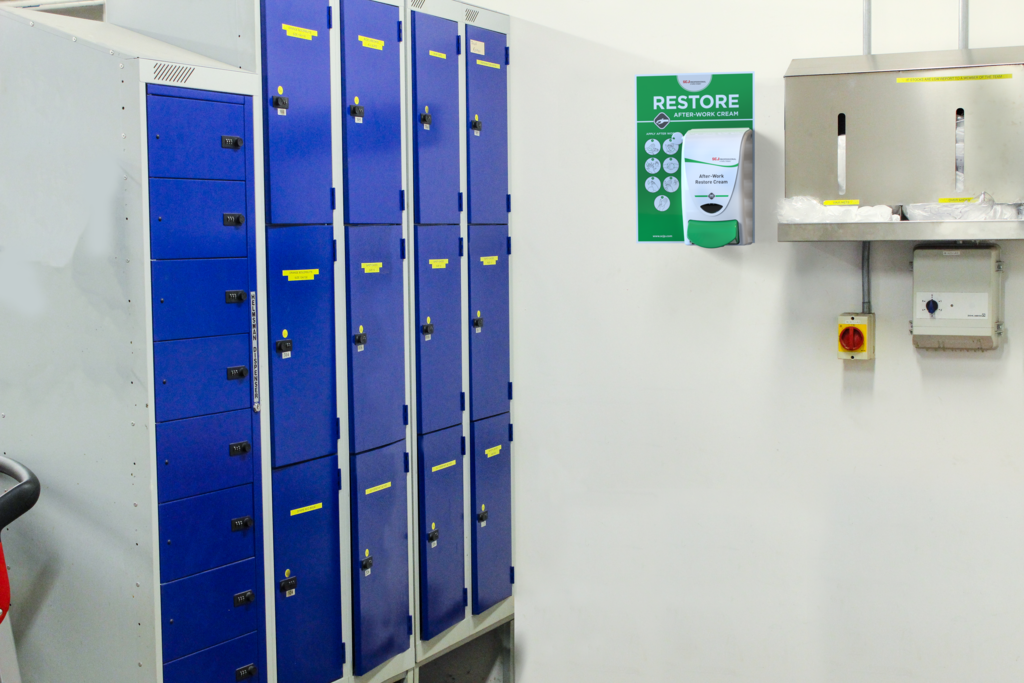
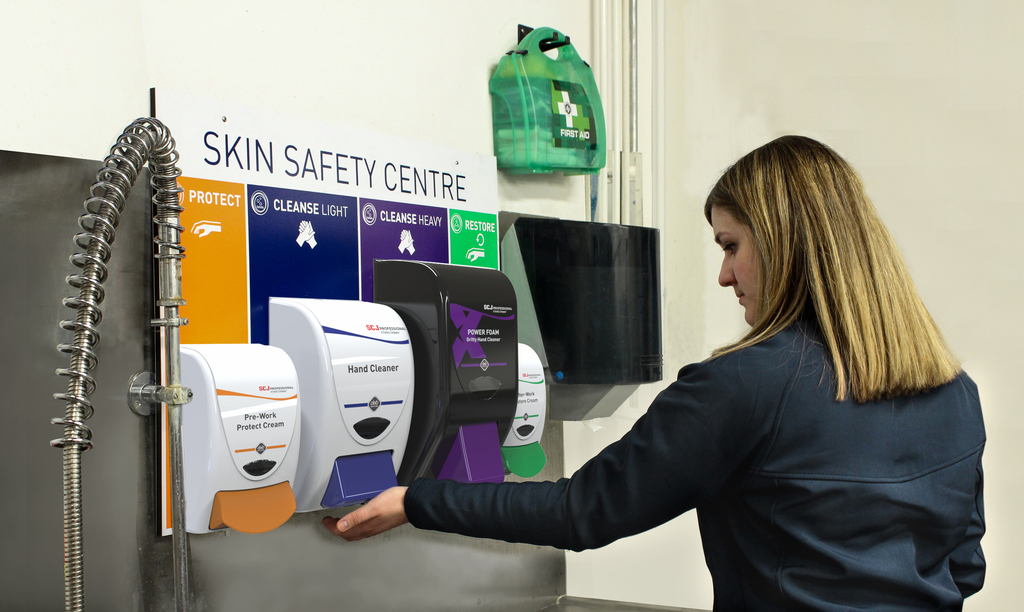

Denby Hall Way
Denby
DE5 8JZ
UNITED KINGDOM
01773 855 100